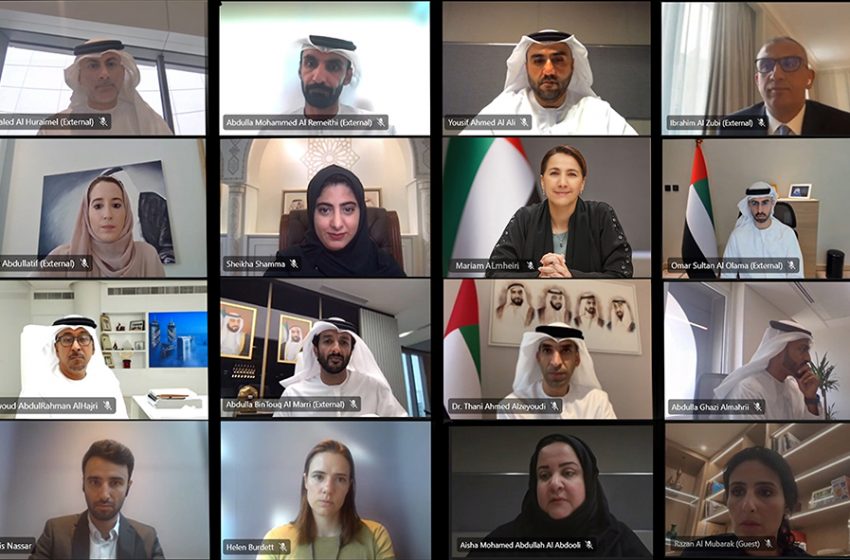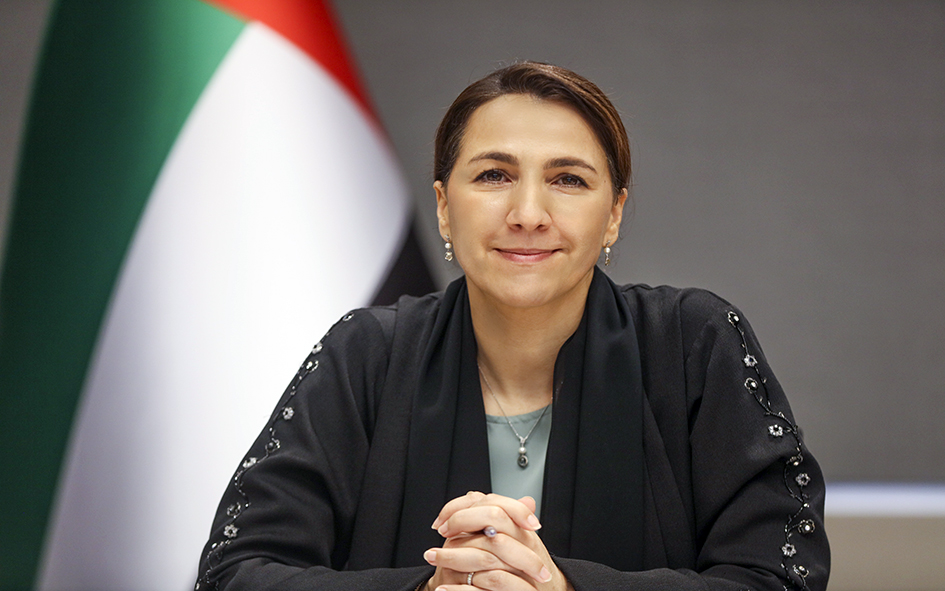Ramadan Evenings Reimagined.. A Refined Iftar Experience at Fairmont The Palm’s Fairuz Garden
UAE Circular Economy Council Approves 22 Policies to Expedite Progress of Circular Economy Transition at Second Meeting of 2022

Council takes deep dive into eight trends, and identifies at least 16 activities that can be embraced as viable business opportunities in the circular economy agenda.
Dubai-UAE: 3 July, 2022 – The UAE Circular Economy Council convened its second meeting of 2022, presided over by Her Excellency Mariam bint Mohammed Almheiri, Minister of Climate Change and Environment.

The meeting drew the participation of high-level representatives of various government and private sector entities from across the UAE. These included His Excellency Abdulla bin Touq Al Marri, Minister of Economy, His Excellency Dr Thani bin Ahmed Al Zeyoudi, Minister of State for Foreign Trade, His Excellency Omar bin Sultan Al Olama, Minister of State for Artificial Intelligence, Digital Economy and Teleworking Applications, Sheikha Shamma bint Sultan bin Khalifa Al Nahyan, CEO of Alliances for Global Sustainability, His Excellency Omar Suwaina Al Suwaidi, Undersecretary of the Ministry of Industry and Advanced Technology, Her Excellency Razan Khalifa Al Mubarak, Managing Director of the Environment Agency – Abu Dhabi, His Excellency Eng Dawood Al Hajri, Director General of Dubai Municipality, His Excellency Abdulrahman Al Nuaimi, Director General of the Municipality and Planning Department in Ajman, His Excellency Eng Essa Al Hashmi, Assistant Undersecretary for the Sustainable Communities Sector at the Ministry of Climate Change and Environment, His Excellency Eng Yousif Al Ali, Assistant Undersecretary for Electricity, Water and Future Energy at the Ministry of Energy and Infrastructure, His Excellency Khaled Al Huraimel, CEO of Bee’ah, Her Excellency Laila Mostafa Abdullatif, Director General of Emirates Nature-WWF, and Ibrahim Al-Zu’bi, Chief Sustainability Officer at Majid Al Futtaim Holding.
The Council approved 22 policies proposed by its subsidiary, the Circular Economy Policies Committee, that focus on accelerating the implementation of the circular economy model in the UAE in four main sectors – manufacturing, food, infrastructure, and transport. During the meeting, the Council members highlighted eight relevant innovation trends, including waste-to-resource, reuse, internet of waste, artificial intelligence, remanufacturing, bio-based materials, blockchain, and repair. They also identified at least 16 circular economy activities that open a wealth of opportunities for businesses, such as upcycling textile waste into new products, developing automated AI-enabled waste management solutions, and remanufacturing electronic waste.
Her Excellency said: “With the cabinet’s approval of the UAE Circular Economy Policy in January 2021, we have embarked on an ambitious and important mission to transition from a linear model to a circular economy approach. Our current linear economy consumes valuable materials and resources without being able to benefit from them after use, which represents waste in the modern concept of sustainability. Our approach seeks to protect our environment and to ensure the long-term economic and social prosperity of our country.”
She added: “Many key stakeholders in the UAE have already started to embrace circular economy principles. We at the Ministry of Climate Change and Environment and at the Ministry of Economy have been engaging with them and others to gain valuable information and insights about ways of facilitating the transition to a circular economy.”
The Minister noted that 45 percent of global greenhouse gas (GHG) emissions result from producing cars, clothes, food, and other products used every day. This demonstrates the great potential that lays in the circular economy, which can complement emission reduction and mitigate the current climate crisis.
For his part, His Excellency Abdulla bin Touq Al Marri, Minister of Economy and Head of the Council’s Circular Economy Policies Committee, noted that the Committee recently held intensive workshops and meetings with the government and private sectors as well as international partners. The workshops were designed to support the implementation of the UAE Circular Economy Policy in four key sectors – manufacturing, green infrastructure, transportation, and food production and consumption – as well as the 22 new policies issued to drive the UAE’s overall transition to a circular economy. These policies will contribute to addressing all challenges the private sector is facing in its shift to a circular economy and support the country’s green development drive. The initiatives align with the directives of our wise leadership to fast-track the country’s transition to a circular economy as one of the sustainability, flexibility, and growth drivers of the new economic model as per the Principles of the 50.
He added: “The Committee continues its efforts to implement the UAE Circular Economy Policy 2021-2031 through programs and projects that are set to attract investments to this field and expand its infrastructure. Efforts are also being exerted to establish a circular economy database, in addition to offering incentives to encourage the private sector to shift towards clean production methods, thereby enhancing the UAE’s competitiveness as one of the leading circular economies regionally and globally.”
After a brief on the progress of current circular economy projects in the UAE and startups’ insights, Anis Nassar from the World Economic Forum (WEF) updated Council members on the Scale360° initiative. The initiative brings together global partners to scale up the use of Fourth Industrial Revolution (4IR) technologies with the aim of fast-tracking the adoption of circular economy principles.
The meeting agenda also featured an overview of Bee’ah’s efforts to implement a circular economy model in its operations as well as a presentation on the Abu Dhabi Emirate Single-Use Plastic Policy that came into force on June 1, 2022.
Approved in January 2021, the UAE Circular Economy Policy identifies the optimal approach to the country’s transition to a circular economy. Its objectives include building a sustainable economy, promoting the efficient use of natural resources, encouraging the private sector to shift to cleaner industrial production methods that involve the use of artificial intelligence (AI) and other 4IR technologies, and adopting sustainable consumption and production patterns that reduce environmental stress while meeting the basic needs of the population.
The UAE Circular Economy Council comprises 17 representatives of relevant federal and local government entities, private sector businesses, and international organizations.






